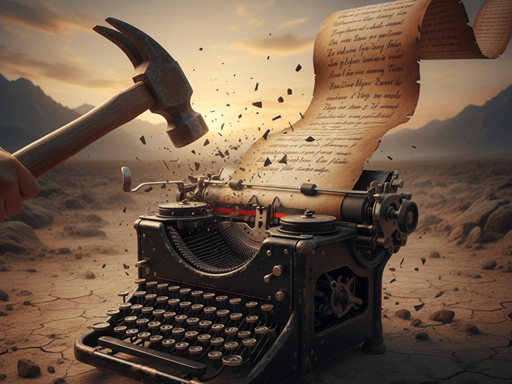DOOM TO HISTORY!!!
What does the past have to do with how we make the decisions that become future history?
9/24/20254 min read


In a Big Think Mini Philosophy article[1] it is suggested that “One of the most quoted lines in philosophy is completely misused and misunderstood,” the conclusion is that Hegel didn’t mean that ‘what we learn from history is that we don’t choose to learn from history,’ but that “What we learn from history is that we cannot learn from history.”
The premise is that as each period of history is different the facts and ways of dealing with them are different. Applying the very specific ideas that were used in one conflict, natural disaster or diplomatic endeavor doesn’t necessarily apply to others. But this is the limitation of diachronic language. It is the idea that as things happen and time unfolds, our language changes and we can say new things about the world.
Indeed, we have to come up with new words to describe new things and ideas. And those are the tools that allow us to deal with what is happening at a specific time. Situations occur, similar or dissimilar to others and we use specific new and old words to deal with issues. But at the core of language, we have to ask ourselves what is going on? All language has ever been used for is to communicate.
That hasn’t changed. The only thing that can be communicated and truly understood are facts about the world. Non-facts cannot be seen as the same thing by two individuals because they have no third element in the world to refer to. Wittgenstein was right about not being able to know if we are seeing the same bugs, if red is the same for all people, as applied to imaginary non-facts (color isn’t a fact of or about the world – it is a mental hallucination inferring energy level of electro-magnetic particles). To suggest we can’t agree on fact that are seen by different individuals, would deny the world as a whole so that it couldn’t be shared and we would each individually live in separate, private prisions. But we take advantage of each other and benefit each other so we know, at least by experience that tlike gravity, the arodl does exist as some sort of external objust to us that we are ultimately completely just a piece of.
The only thing we can use language for is to communicate a relationship that existed in the past, exist now, or misght exist. We merely discuss the world and its resources, including each other. Even non-factual talk comes back down to earth as it does represent some imagined political position among resources. Even if one cant see it in the tet, it is doing so for the writer. One doesn’t have to believe or see another non-factual vision of the world but presenting one does put oneself in a position that will change the nature of real resources, material or mental. That hasn’t changed.
Language allows us to solve problems like preventing preventable harm and learing how to prevent harm that seems unpreventable now. But the wrong language prevents us from preventing preventable harm. That hasn’t changed.
What we learn from history is that we don’t learn from history when we don’t pay attention to the facts that can be applied to different but similar scenarios. We don’t learn when we tell ourselves lies about the past in order for an individual to take advantage or shelter them from an advantage taken that is now seen as a mistake that can be prevented in the future. We learned that we figured out how to prevent harm that was previously unprevented (polio), and that we can do it again, even if we think we can’t (another problem with diachronic language).
What we learn is that we can learn or not, and doing so paves a path for a healthier world that people will want to take part in, meaning that we share experience and the language they use will be similar and thus their individual world views will be similar, and they will be ablet to continue to solce issues based on collaboration. But we can choose not to learn, not only how past mistake can be insightful to preventing mistakes now, but we can also choose not to learn that we have and can have the ability again solve these mistakes before they get worse. So, if we don’t think we can because the past in which we did cant be applied to the current, or we choose not to learn what actual things were helpful and which were not, we wont be able to repeat the past. But its not the past, it’s the now which is consisted 100% of the past. Everyting around you is the past. The world has changed by the time you realize it in its ‘current’ state. All we have are actual piece of the past (not separate from the past) that we use to build imaginary current moments. The past is constantly unfolding into a thing we see as a now and knowledge of where these peioce of the past came from and how they interacted, will tell us how to manage them now.
[1] https://bigthink.com/mini-philosophy/hegel-quot-misused-and-misunderstood/
Further Reading & Research


Project title
This project aims to develop a user-friendly mobile application.


Project title
This project aims to develop a user-friendly mobile application.
